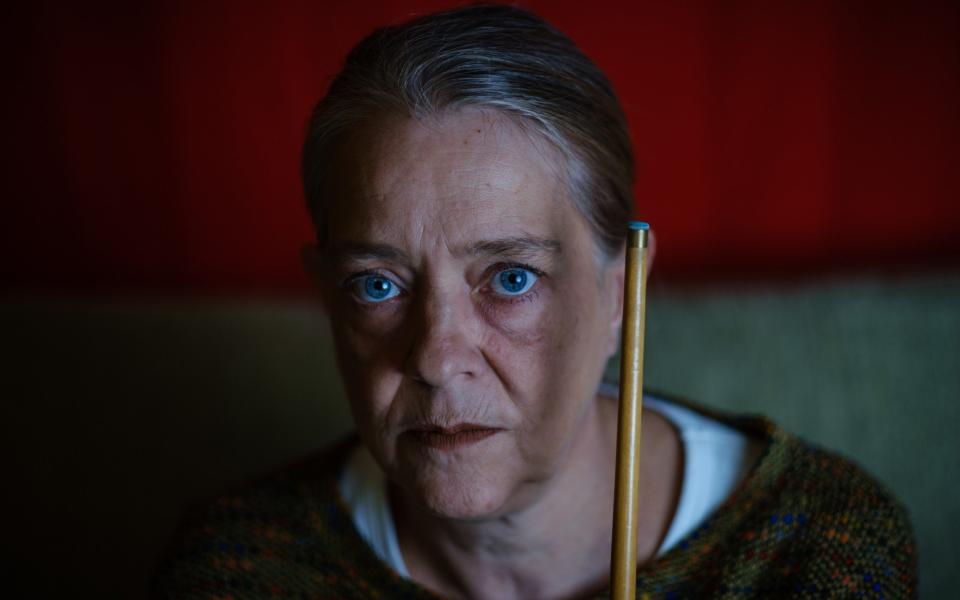Female pool players’ first step to UK’s first legal case over transgender rules about-turn

Women pool players have taken the first step towards launching a landmark lawsuit over rules forcing them to play against transgender women.
Telegraph Sport can disclose that lawyers acting for four complainants have submitted a “letter before claim” to the World Eightball Pool Federation and Ultimate Pool Group, accusing the governing bodies of subjecting those born female to “direct sex discrimination and harassment on the grounds of sex”.
A quartet that could be joined by around 30 more women includes Lynne Pinches, who in November forfeited the final of a national title in which her opponent was a transgender woman.
The news comes days after Telegraph Sport disclosed that Lia Thomas, the swimmer at the centre of one of sport’s biggest trans storms, had been mounting a secret legal challenge against the ban on her competing in elite women’s races – including at the Olympics.
The challenge against pool’s corresponding lack of restrictions could be the first in the UK to test the provisions for female-only sport in the Equality Act 2010, with the complainants contesting an about-turn in October over new rules excluding trans women from the female category.
The following month, Pinches was cheered by spectators when she packed up her cue and refused to play as the final of the Ladies Champions of Champions got under way. Her opponent, Harriet Haynes, later picked up the trophy by default.
Pinches, the sister of veteran snooker player Barry Pinches, said: “I have self-excluded and turned down my opportunity of a professional spot on the Ultimate Pool Tour because my choices are either to play and concede the match again or not play at all. Neither option is good for my mental well-being, but I do have regrets about withdrawing from the competition because I will miss playing and being part of the tour.”

The concession by Pinches was followed by another a week later by Jo Hobday, who has joined her in her fight along with Frankie Rogers and Holly Cann.
The letter of claim has been bankrolled via a campaign on CrowdJustice.com, the world’s crowdfunding platform for legal action, that has so far raised more than £20,000 of the £30,000 the group estimates is needed to launch an Equality Act challenge.
Rogers said: “When the announcement was made on Aug 26 that entry to women’s categories would be restricted to women-born only, I was surprised how elated I felt. Before then, if I wanted to play the sport I love, I had to accept male-born trans players in women’s tournaments. I played Harriet Haynes in the last 16 of the National Ladies Singles in November 2022.
“I lost 5-1. I remember thinking to myself walking to the table that I had played all day and was on form but I knew the competition was over for me. The U-turn in October was upsetting and infuriated me to the point where I felt that our voices needed to be heard and listened to.”
Cann said: “Competitive advantage is one thing and well understood, that’s what makes a win both fair and rewarding, but you cannot compete against the category advantage a male has in all areas of sporting activity. I am not male. I was not born male. I do not have those inherent male advantages.”
‘The obvious disadvantage’
October’s about-turn prompted accusations the WEPF and UPG had caved in to legal threats from trans players and the letter of claim demands the bodies reinstate a ban they had introduced in August.
Peter Daly of Doyle Clayton, which is representing the claimants, said: “The provisions of s.195 Equality Act 2010 are clear and are there to protect biological women against the obvious disadvantage they experience in having to compete against males in gender-affected sport.
“Doyle Clayton looks forward to securing a resolution of the situation on behalf of our clients which ensures that they are able to compete fairly in their sport.”
Fiona McAnena, from the campaign group Fair Play For Women, said: “Women pool players should not have to face male opponents in a women’s tournament, and they should not have to go to court to get fairness. They are showing great courage by taking a stand.”
The WEPF and UPG have been approached for comment.
Haynes told the BBC this month that she had suffered “vile” and “horrific” abuse online after her controversial Champion of Champions victory.
“The world governing body... looked into this, and couldn’t find any evidence,” Haynes said. “They didn’t agree that males have an inherent advantage over females [in cue sports].”
Sharron Davies, the Olympian swimmer and campaigner for women’s sport, previously said pool was another example of a sport failing to put safety and fairness before inclusion.
Athletics, swimming and cycling have all changed their transgender policies in the past 12 months, while both codes of rugby have also moved to protect sport for those born female.

 Yahoo Sport
Yahoo Sport 





































